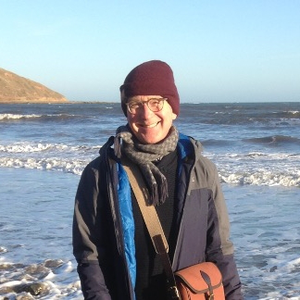Date: January 22, 2023
Time: 12:00 PM-1:30 PM New York / 5:00 PM-6:30 PM London / 6:00 PM -7:30 PM Salzburg
Location: Zoom
Language: English
This webinar will explore the presenters' concerns regarding the quality of evidence reviews in the field of arts and health and creative arts therapy research. We have developed an original method of starting with a primary study in arts and health and examining the way in which it is treated in subsequent evidence reviews, including systematic reviews and meta-analyses. The stimulus for this was an initial plan to undertake a systematic review of randomised controlled trials (RCT) on creative arts programmes for children and young people experiencing challenges to their mental health. However, following a comprehensive search of multiple databases, initial screening of abstracts and examination of full text papers, we were concerned with the poor quality of primary trials in this area, and the uncritical treatment of research in reviews.
We will outline the lessons learned from three robust critique exercises, starting with an RCT on art therapy, music therapy and dance-movement therapy with children and young people with depression and anxiety. A further robust critique has taken as a starting point a landmark study on singing, older people and health, and examined the account given of it in further evidence reviews. The main conclusion reached from our investigations is that authors of evidence reviews are insufficiently critical of the limitations and weaknesses in primary trials. A further finding is that development in the field creative arts and health has been hampered by a lack of serious attention to replication. Implications of our work of future research and evidence reviews in the creative arts and health will be considered.
Prof. Helen Payne
Helen Payne, Reg. ADMP UK & UKCP is a Professor of Psychotherapy at the University of Hertfordshire, UK. She is a registered, practising psychotherapist and specialising in the Discipline of Authentic Movement. Her research interests include the ecological self; arts-informed research; embodied approach to research, psychotherapy, leadership and learning; student and staff mental health. She conducts research, supervises clinical practice and PhDs, teaches and examines at doctorate level nationally/internationally. She led the establishment of the Association for Dance Movement Psychotherapy UK. She is the founding Editor-in-Chief for the international peer reviewed journal 'Body, Movement and Dance in Psychotherapy' and President of IACAET. She developed the research-informed and evidence-based BodyMind Approach® to support people in the NHS with persistent bodily symptoms for which tests and scans come back negative.

- To appreciate the role of evidence reviews in the science and practice of arts and health
- To understand the range of methodological guidance for the conduct and evaluation of primary research trials
- To understand the range of methodological guidance for the conduct and evaluation of evidence reviews
- To gain insights into the shortcomings of primary research and evidence reviews in the field of creative arts therapies

IACAET Membership Ticket
IACAET Registered Member Only
Standard Ticket
Non IACAET Member

